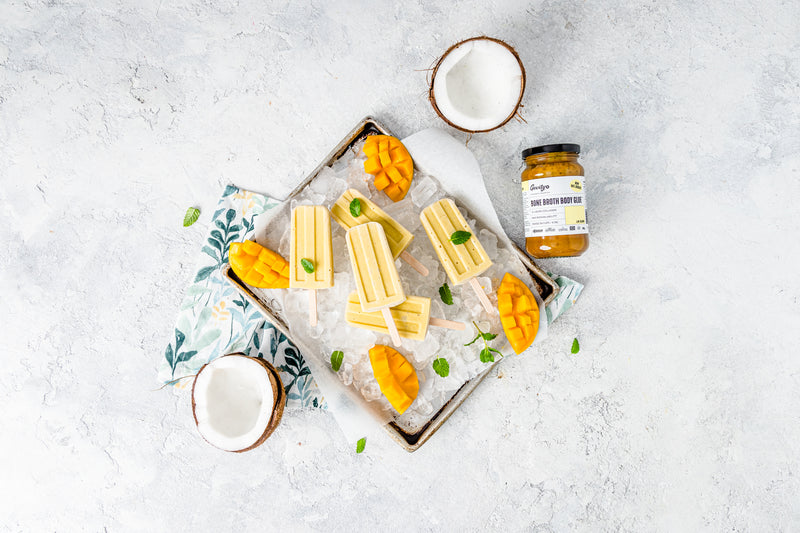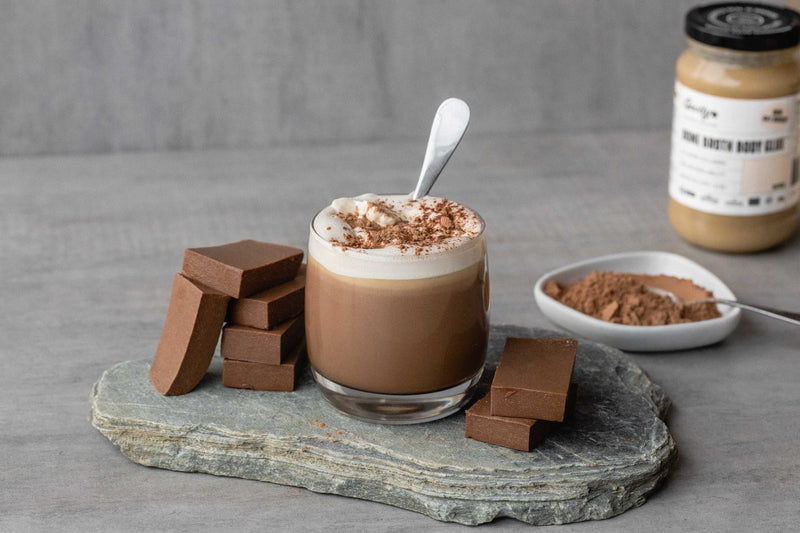What if we were approaching skincare all wrong?
It can be hard to imagine, but your skin is an organ. The largest organ in your body, in fact. And just like your heart, liver and intestines, it needs nutrients, oxygen, hormones and exercise to exist.
But let’s be honest, nobody wants their skin to survive - we want it to thrive!
Hold up - what does skin actually do?
Your skin is a HUGE protective layer that covers your body. Keep in mind that inside your body, you also have other layers (aka membranes) protecting organs, regions and structures that are important for, well, life.
If we think back to biology class, we remember how protein can be generalised as the main building block for pretty much everything in your body, including (and especially) your skin.
Usually, these protective layers have functions such as being a sensor for temperature and light, excreting toxins (yes, your skin helps with detox) and building a physical barrier that prevents pathogens from infecting your body.
However, just like any other organ, your skin will also age. And as that happens, it starts to lose its ability to perform these functions.
So, what impacts skin health?
The main issue affecting your skins health and appearance is its ability to repair and how that affects your skin appearance.
Aging in skin starts when we are born. Life factors such as sun, toxins (pollution, drugs, unhealthy foods), stress, lack of sleep or exercise, injury and disease all play a big part in aging.
Certain damages are reparable and leave no scars, especially when we are young. Others, not so much.
It’s believed that from the age of 30, the body’s ability to make new proteins decreases by the year.
In fact, each decade there is a significant change. One of the main changes we see related to skin is loss of elasticity, leading to dreaded wrinkles.
Why does skin wrinkle?
Young and firm skin has 2 key layers: dermis and epidermis.
As we age, the collagen density of dermis decreases, essentially thinning it out.
Other factors and substances will then affect our ability to retain moisture and therefore maintain the protection of the “outer” layer of skin.
So what can we do to prevent it?
Best ways to protect your skin:
Control your hormones
Ladies, if you’re currently within menstrual age, a healthy menstrual cycle is a must for healthy skin.
Please remember, while your reproductive system is active, it’s PRIME TIME to act on anti-aging strategies. Your collagen production reaches its peak during this time, so use it wisely.
Now if you’re done and dusted with menstruation, we have good and bad news. The good news is there are no more hormonal changes until you die.
Woo!
Going through menopause will be the last hormonal change you will ever go through!
On the other hand, this is also when collagen and overall protein synthesis start to decline a little faster. But lucky for you, this article will help you learn how to slow this process.
Maintain a healthy body composition
Excess fat = excess inflammation, imbalance in hormones and difficulty absorbing essential nutrients for anti-aging.
Consume protein
Protein is the main building block for tissues in the body. However, our research team has found that unless you live in a third world country and experience poverty, the probability of you actually need MORE protein is very low.
Rather than just consuming more protein, you may benefit from consuming skin-friendly nutrients such as collagen. There is so much research out there supporting the consumption of collagen protein for improving the quality of chronically damaged or aged skin.
So where can you source these proteins?
Bovine collagen (cow derived) bones have the highest quality gelatin and collagen.
It’s also important to consider the length of consumption; when it comes to protein consumption and results, regularity and consistency play a huge part.
Boosting collagen with Body Glue™
There is a reason why all our Body Glue™ products are meat-free, made from high-quality Australian grass-fed and finished cattle: collagen and gelatin from bones are superior for these anti-aging properties.
Based on this research, our recommendation for an anti-aging skin protocol is 1x daily consumption of Body Glue™ for at least 4 weeks.
Of course, there are many factors affecting skin health but high-quality collagen is definitely a big leap in the right direction.
Let us know how you go!
References:
Song, H., Zhang, S., Zhang, L., & Li, B. (2017). Effect of Orally Administered Collagen Peptides from Bovine Bone on Skin Aging in Chronologically Aged Mice. Nutrients, 9(11), 1209. https://doi.org/10.3390/nu9111209
Choi FD, Sung CT, Juhasz ML, Mesinkovsk NA. Oral Collagen Supplementation: A Systematic Review of Dermatological Applications. J Drugs Dermatol. 2019;18(1):9-16.
Asserin, J., Lati, E., Shioya, T., & Prawitt, J. (2015). The effect of oral collagen peptide supplementation on skin moisture and the dermal collagen network: evidence from an ex vivo model and randomized, placebo-controlled clinical trials. Journal of cosmetic dermatology, 14(4), 291–301. https://doi.org/10.1111/jocd.12174




